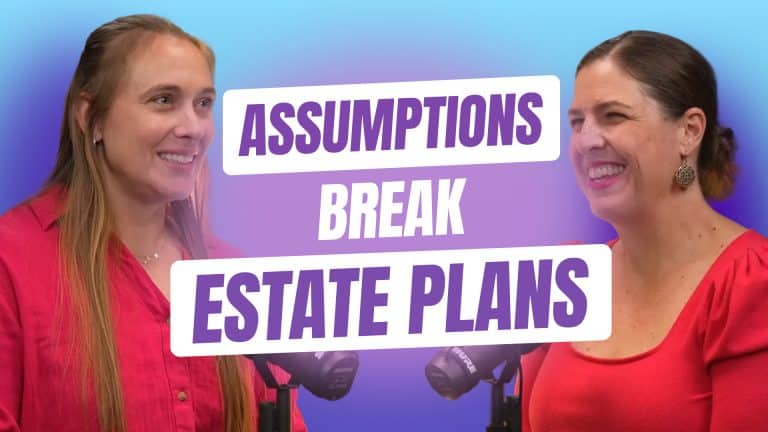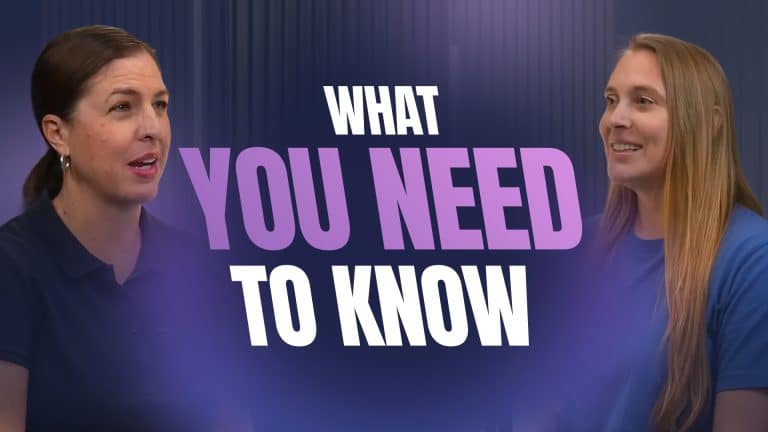Table of Contents
- Why Estate Planning Mistakes Are So Costly
- The 9 Most Expensive Estate Planning Mistakes
- How to Fix Your Estate Plan Before It’s Too Late
- Real Estate Planning Disasters (And How to Avoid Them)
- Your Estate Planning Action Plan
Why Good Intentions Lead to Estate Planning Disasters
Most estate planning mistakes don’t come from neglect—they come from blind spots. From overconfidence in online estate planning tools. From assumptions that loved ones will “figure it out” after you’re gone.
This comprehensive guide reveals the missteps that seasoned estate planning attorneys see every week. These aren’t theoretical errors—they’re real problems costing families:
- 6-18 months in probate court
- $15,000-$50,000+ in legal fees
- Permanent relationship damage between heirs
- Complete loss of privacy during estate settlement
If you have an estate plan—or know you need one—here’s what to watch out for.
Why Even “Complete” Estate Plans Fail
Good Intentions, Poor Execution
Most people who create flawed estate plans aren’t lazy. They start with good intentions. But estate planning law is complex, and missing one piece can unravel the entire plan. Online estate planning tools promise simplicity—but they can’t guide you through nuanced family situations or ask crucial follow-up questions.
Courts Don’t Care About Your Intentions
If your estate planning documents aren’t legally valid, complete, or updated, courts will follow state intestacy laws. That usually means a lengthy probate process, substantial legal fees, and zero privacy. Your wishes don’t matter if they aren’t backed by properly executed legal documents.
The 9 Estate Planning Mistakes That Destroy Families
1. Not Creating an Estate Plan at All
The Problem: No decision is still a decision. When you die without an estate plan, your assets go through probate, and state law decides who inherits what.
The Cost:
- Default inheritance rules apply (spouse may not get everything)
- Probate takes 6-12+ months to complete
- Loved ones deal with court filings, attorney fees, and family stress
- No privacy—your estate becomes public record
Who This Affects: 67% of Americans don’t have a will, according to recent surveys.
2. Letting Your Estate Plan Go Stale
The Problem: Life changes constantly. Your estate plan must evolve too. We see outdated estate planning documents constantly—revocable living trusts untouched for decades, powers of attorney naming deceased agents, wills from other states that no longer comply with local laws.
Update Your Estate Plan After:
- Marriage, divorce, or death of beneficiaries
- Moving to a new state
- Birth of children or grandchildren
- Major financial changes (inheritance, business sale, real estate purchases)
- Changes in tax laws
3. Relying on Online Estate Planning Tools Without Professional Guidance
The Problem: Online platforms can generate legal documents but can’t think through complex scenarios or family dynamics.
What DIY Estate Planning Tools Often Miss:
- Backup plans (what if your trustee refuses to serve?)
- Complex family dynamics (estranged children, addiction issues, special needs)
- Conditional inheritance logic (delaying inheritance until age milestones)
- State-specific requirements for valid execution
- Tax optimization strategies
The Hidden Cost: A $200 online will can trigger $20,000+ in probate costs if executed improperly.
4. Forgetting to Fund Your Trust (The #1 Trust Planning Mistake)
The Problem: A revocable living trust is like an empty container. If you don’t transfer assets into it, it provides zero probate protection.
Common Trust Funding Errors:
- Real estate isn’t retitled to the trust
- Home removed from trust during refinancing, never transferred back
- New assets (vehicles, bank accounts, investment accounts) held outside the trust
- Out-of-state property not included in trust funding
The Result: Even with a perfectly drafted trust, unfunded assets go through probate.
Pro Tip: Your trust should own everything except retirement accounts and life insurance (which use beneficiary designations).
5. Assuming “My Kids Will Get Along”
The Problem: Many parents say, “My children would never fight over money.” But grief changes people, and outside influences (spouses, in-laws, financial stress) can destroy family harmony.
What Triggers Estate Disputes:
- Perceived favoritism in asset distribution
- Lack of clear instructions for personal property
- One sibling serving as trustee over others
- Blended family dynamics
- Different financial situations among heirs
Shocking Statistic: 70% of wealthy families lose their wealth by the second generation, often due to family conflicts over inheritance.
6. Ignoring Personal Property Distribution
The Problem: You may not care about holiday decorations or that coffee mug collection, but your heirs might fight wars over them.
Why Personal Property Causes Problems:
- High sentimental value, low financial worth
- No clear selection process
- Multiple heirs want the same items
- Emotional attachments override logic
Simple Solution: Create a personal property memorandum or establish a “selection order” system (oldest child picks first, then youngest, etc.).
7. Oversharing Estate Plan Details
The Problem: Telling family members about their inheritance can backfire spectacularly.
Risks of Sharing Estate Plan Information:
- Expectations based on outdated document versions
- Will contests from disappointed heirs
- Family resentment over unequal distributions
- Pressure to change your estate plan
Better Approach: Tell trusted family members where your estate planning documents are located—don’t distribute copies.
8. Overlooking Digital Assets in Estate Planning
The Problem: Our lives are increasingly digital, but most estate plans ignore online assets entirely.
Digital Assets to Include:
- Cryptocurrency wallets and private keys
- Password managers and digital vaults
- Cloud storage accounts (Google Drive, Dropbox, iCloud)
- Email accounts and social media profiles
- Airline miles and loyalty program points
- Digital photos and videos
Scary Reality: If no one has your crypto wallet private key, that money disappears forever. No recovery possible.
9. Thinking a Trust Solves Everything
The Problem: A living trust is powerful but isn’t a complete estate plan by itself.
Other Essential Estate Planning Documents:
- Pour-over will (catches assets outside the trust)
- Financial power of attorney (for incapacity planning)
- Healthcare directives and HIPAA authorizations
- Guardianship designations for minor children
- Business succession planning documents
Without These: Even the best trust won’t protect your family from court intervention during incapacity or estate settlement.
How to Fix Your Estate Plan Before It’s Too Late
5 Essential Estate Planning Action Steps
- Review Your Estate Plan Every 2-3 Years
- Schedule regular reviews with your estate planning attorney ◦ Check after major life events
- Verify all documents remain legally valid
- Properly Fund Your Trust
- Transfer real estate deeds to trust ownership
- Retitle bank accounts and investment accounts
- Update beneficiary designations on retirement accounts
- Don’t forget vehicles and business interests
- Create a Comprehensive Pour-Over Will
- Catches any assets not in your trust
- Names guardians for minor children
- Includes personal property distribution instructions
- Update All Powers of Attorney
- Financial POA for money management during incapacity
- Healthcare POA for medical decisions
- Ensure agents are still willing and able to serve
- Document Digital Assets Thoroughly
- Create secure password list or use password manager
- Include cryptocurrency wallet information
- Provide access instructions for digital accounts
Real Estate Planning Disasters (And How They Were Avoided)
Case Study 1: The Unfunded Trust Disaster
Situation: Family created $5,000 trust package, never transferred $800,000 home into trust.
Result: 14-month probate process, $35,000 in attorney fees.
Lesson: Trust funding is more important than trust drafting.
Case Study 2: The Christmas Ornament War
Situation: Two adult siblings fought 3-year court battle over deceased mother’s holiday decorations.
Cost: $50,000+ in legal fees over items worth less than $500.
Lesson: Personal property instructions prevent family wars.
Case Study 3: The Lost Crypto Fortune
Situation: Tech entrepreneur died with $2.3 million in Bitcoin, but no one had wallet access.
Result: Cryptocurrency permanently lost—no recovery possible.
Lesson: Digital asset planning is crucial for modern estates.
Your Estate Planning Action Plan
Immediate Steps (This Week)
- Locate your current estate planning documents
- Check when they were last updated
- Verify your trust is properly funded
- Update beneficiary designations on all accounts
Short-Term Goals (Next 30 Days)
- Schedule consultation with qualified estate planning attorney
- Create comprehensive asset inventory
- Document digital assets and passwords securely
- Review and update powers of attorney
Long-Term Maintenance (Ongoing)
- Annual estate plan review
- Update after major life changes
- Monitor changes in estate planning laws
- Communicate (appropriately) with family about your plans
Conclusion: Estate Planning That Actually Works
Estate planning isn’t about death—it’s about protecting your family when they need it most. The most expensive estate plan is one that fails when your loved ones need it.
Avoid these nine costly mistakes, work with qualified professionals, and review your plan regularly. Your family will thank you for the clarity, control, and protection you’ve provided.
Ready to fix your estate plan? The best time to start was yesterday. The second-best time is today.
Frequently Asked Questions About Estate Planning Mistakes
Q: How often should I update my estate plan?
A: Review every 2-3 years or after major life events (marriage, divorce, new children, relocation, significant financial changes).
Q: What’s the biggest estate planning mistake?
A: Not funding your trust properly. Even perfect documents won’t help if your assets aren’t titled correctly.
Q: Can I use online tools for estate planning?
A: Simple situations might work with online tools, but complex family dynamics, significant assets, or multi-state property require professional guidance.
Q: What happens if I die without an estate plan?
A: Your assets go through probate, state law determines inheritance, and your family faces months of court proceedings and legal fees.Q: How much does proper estate planning cost?
A: Comprehensive estate plans typically cost $2,000-$5,000, but prevent probate costs of $15,000-$50,000+ later.




